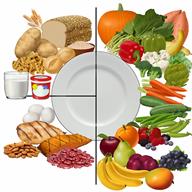Health Maintenance for Postmenopausal Women
Menopause is a normal process in which your ability to get pregnant comes to an end. This process happens slowly over many months or years, usually between the ages of 48 and 55. Menopause is complete when you have missed your menstrual period for 12 months.
It is important to talk with your health care provider about some of the most common conditions that affect women after menopause (postmenopausal women). These include heart disease, cancer, and bone loss (osteoporosis). Adopting a healthy lifestyle and getting preventive care can help to promote your health and wellness. The actions you take can also lower your chances of developing some of these common conditions.
What are the signs and symptoms of menopause?
During menopause, you may have the following symptoms:
Talk with your health care provider about treatment options for your symptoms.
Do I need hormone replacement therapy?
-
Hormone replacement therapy is effective in treating symptoms that are caused by menopause, such as hot flashes and night sweats.
-
Hormone replacement carries certain risks, especially as you become older. If you are thinking about using estrogen or estrogen with progestin, discuss the benefits and risks with your health care provider.
How can I reduce my risk for heart disease and stroke?
The risk of heart disease, heart attack, and stroke increases as you age. One of the causes may be a change in the body's hormones during menopause. This can affect how your body uses dietary fats, triglycerides, and cholesterol. Heart attack and stroke are medical emergencies. There are many things that you can do to help prevent heart disease and stroke.
Watch your blood pressure
Eat a healthy diet

-
Eat a diet that includes plenty of vegetables, fruits, low-fat dairy products, and lean protein.
-
Do not eat a lot of foods that are high in solid fats, added sugars, or sodium.
Get regular exercise
Get regular exercise. This is one of the most important things you can do for your health. Most adults should:
Try to exercise for at least 150 minutes each week. The exercise should increase your heart rate and make you sweat (moderate-intensity exercise).
Try to do strengthening exercises at least twice each week. Do these in addition to the moderate-intensity exercise.
Spend less time sitting. Even light physical activity can be beneficial.
Other tips
Work with your health care provider to achieve or maintain a healthy weight.
Do not use any products that contain nicotine or tobacco. These products include cigarettes, chewing tobacco, and vaping devices, such as e-cigarettes. If you need help quitting, ask your health care provider.
Know your numbers. Ask your health care provider to check your cholesterol and your blood sugar (glucose). Continue to have your blood tested as directed by your health care provider.
Do I need screening for cancer?
Depending on your health history and family history, you may need to have cancer screenings at different stages of your life. This may include screening for:
Breast cancer.
Cervical cancer.
Lung cancer.
Colorectal cancer.
What is my risk for osteoporosis?
After menopause, you may be at increased risk for osteoporosis. Osteoporosis is a condition in which bone destruction happens more quickly than new bone creation. To help prevent osteoporosis or the bone fractures that can happen because of osteoporosis, you may take the following actions:
If you are 19–50 years old, get at least 1,000 mg of calcium and at least 600 international units (IU) of vitamin D per day.
If you are older than age 50 but younger than age 70, get at least 1,200 mg of calcium and at least 600 international units (IU) of vitamin D per day.
If you are older than age 70, get at least 1,200 mg of calcium and at least 800 international units (IU) of vitamin D per day.
Smoking and drinking excessive alcohol increase the risk of osteoporosis. Eat foods that are rich in calcium and vitamin D, and do weight-bearing exercises several times each week as directed by your health care provider.
How does menopause affect my mental health?
Depression may occur at any age, but it is more common as you become older. Common symptoms of depression include:
Feeling depressed.
Changes in sleep patterns.
Changes in appetite or eating patterns.
Feeling an overall lack of motivation or enjoyment of activities that you previously enjoyed.
Frequent crying spells.
Talk with your health care provider if you think that you are experiencing any of these symptoms.
General instructions
See your health care provider for regular wellness exams and vaccines. This may include:
Your health care provider may also recommend other immunizations.
Tell your health care provider if you have ever been abused or do not feel safe at home.
Summary
-
Menopause is a normal process in which your ability to get pregnant comes to an end.
-
This condition causes hot flashes, night sweats, decreased interest in sex, mood swings, headaches, or lack of sleep.
-
Treatment for this condition may include hormone replacement therapy.
-
Take actions to keep yourself healthy, including exercising regularly, eating a healthy diet, watching your weight, and checking your blood pressure and blood sugar levels.
-
Get screened for cancer and depression. Make sure that you are up to date with all your vaccines.
This information is not intended to replace advice given to you by your health care provider. Make sure you discuss any questions you have with your health care provider.
